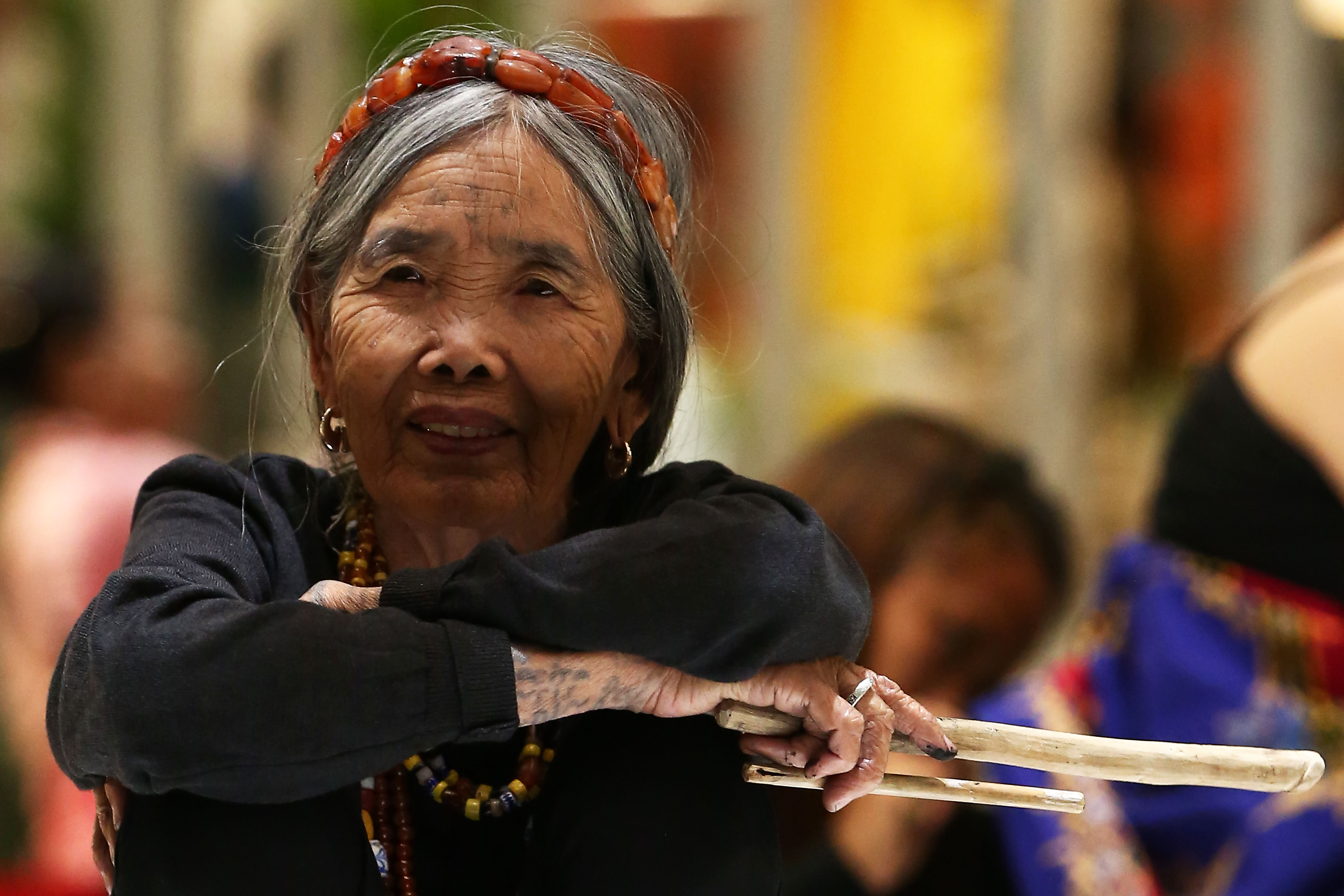8 Reasons the Apo Whang-Od Conversation Needed To Happen
Oct 26, 2017 • Tim Henares

Oct 26, 2017 • Tim Henares
In this rapidly globalizing world where nothing and everything is sacred, and nothing and everything can be cause for offense at the same time, the recently concluded visit of National Artist Apo Whang-Od to Manila has engendered a lot of debate: was she exploited or was she not?
Perhaps, while that is an important discussion to be had, that is simply not the right question to ask in hopes of building an important dialogue on the very tricky topic of cultural appropriation. With all attempts at not assuming the worst in anyone, here are 8 reasons why we’re glad this discussion finally entered the mainstream.
Exactly what is the problem with “cultural appropriation?” To the average Filipino, the concept of a white person wearing a Native American headdress is so foreign to us, and not something we can imagine us doing on a similar scale.
And now, we have what is a nuanced discussion about why commodifying Apo Whang-Od’s art the way it was commodified the past weekend was something worthy of discussion.
Now that we know that yes, some people simply wanted the best for Apo Whang-Od, and wanted to protect her from being exploited, it becomes important for us to understand where exactly this outrage was coming from.
From displaced indigenous people in favor of mining firms to a dying tradition that was, for one weekend, turned into a hot commodity, the dialogue this incident turned up was far more important than the outrage, simply because not enough Filipinos knew enough about the issue to care.
Apo Whang-Od is a (supposed) centenarian who is one of the last remaining “mambabatoks,” a form of tattooing practiced in the Cordillera region (not people who hit you in the back of your head). Some people insisted she was abused and made to do hundreds of tattoos, while further reports said that not only was she fairly compensated, she also had a grand old time, especially when she met her celebrity crush and lodi, Coco Martin.
The problem here lies in what happened to the art and tradition of the mambabatok, as it was airlifted from the Cordillera region and brought to Manila. In commercializing her, did we lose something? Did we trivialize something? While some people would say yes, some would obviously not see it that way.
The truth likely lies somewhere in the middle, which is what necessitates this dialogue in the first place.
Abused? Not in the least. She was treated like a rock star, airlifted, given proper compensation as previously agreed upon, met Coco Martin, and by all indications had a great time. As far as that goes, FAME Manila should pat itself on the back, because how many of us right now can say we know how to show a 100-year old lady a good time?
Here, your opinions may vary, but indeed, this is the crux of why the discussion needed to happen: was the commodification of her art form something that should have been safeguarded against, regardless of contracts and agreements? Or are we making too much of an issue out of nothing, seeing as it seems to have harmed nobody in the end?
Good question. Would bringing in a Jewish-American to a Japanese event be some form of cultural appropriation?
A close look would tell you that it is not. But where does one begin to look?
Yes, indeed. Apo Whang-Od is clearly capable of making her own decisions, but none of that prevents exploitation from happening. Being exploited isn’t a form of weakness on the part of the exploited, so much as the nature of the beast, much in the same way we fetishized Carrot Man and gave him a makeover that shunned much of what made him Carrot Man in the first place. It is the plastic surgery that a Xander Ford would happily accept because society has told him that who he was is repulsive. It is turning a dying art form into a faddish commodity that fetishizes it instead of uplifts it.
Except for all our gripes about what has happened, if Apo Whang-Od herself just wants to put an end to the negativity and to point out that those who are outraged on her behalf aren’t even her relatives or part of her clan, then who are we to insist we have the right to speak for her? She has clearly made her choice, and to insist she doesn’t know any better is not just condescending, it’s downright disrespectful.
We remain vigilant. Not every act of commercialization and exploitation is an unforgivable clarion call that requires a lynch mob. But the next one could. And thanks to today, we have a better understanding of how these dehumanizing practices come to be.
What is your opinion of the whole thing? Comment below!
Input your search keywords and press Enter.

1 comment